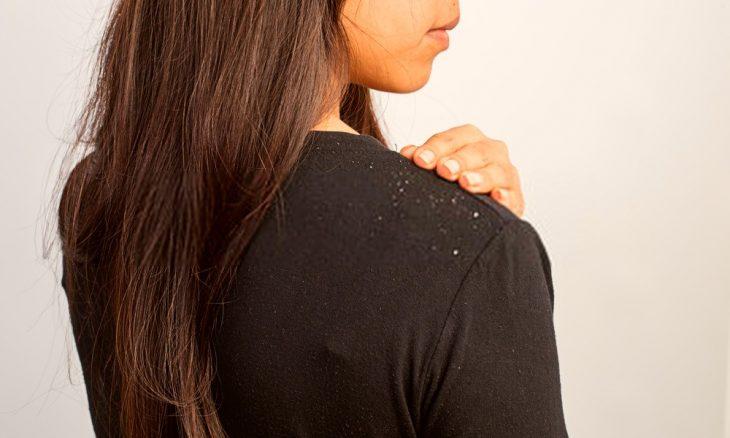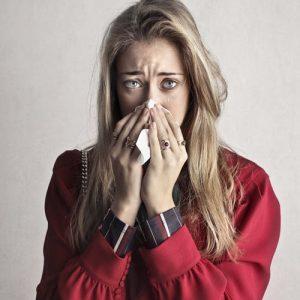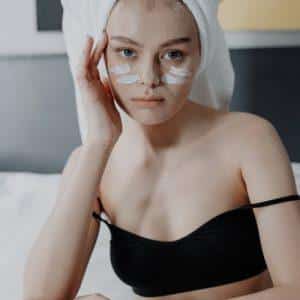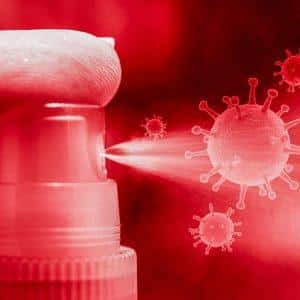
Contents
What is dandruff? It is a condition suffered by around 50% of the adult population in the world. We show you how to prevent the skin of the scalp from peeling.
Dandruff can almost always be fixed using a mild anti-dandruff shampoo, although you can also use a medicinal shampoo or natural home remedies that may be more helpful to you. Below, we explain what dandruff is, what the symptoms are, and how to get rid of it.
Read Also
- How to straighten hair with natural remedies
- Creolin for hair: is it good or bad?
- Almond oil for hair: benefits and how to use it
What is dandruff
Dandruff is considered a mild form of seborrheic dermatitis and in babies is called cradle cap. It is not a contagious or serious condition, but it can sometimes be difficult to treat.
Dandruff symptoms can be more intense in stressful situations and usually appear in cold and dry seasons. These are the signs that accompany this condition:
- Itchy head
- Scaly scalp.
- Scales on the hair, eyebrows, beard, or mustache. In most cases, dandruff does not require medical attention, but you can consult your doctor or dermatologist if the condition does not improve with the use of anti-dandruff shampoo.
Dandruff can appear for different reasons, for example:
- Dry Skin.
- Oily and irritated skin.
- Sensitivity to hair care products.
- Skin conditions such as eczema and psoriasis.
- Not shampooing enough.
- Malassezia fungus, which feeds on the scalp oils of most adults.
Risk factor’s
Dandruff can sometimes be accompanied by seborrhea and anyone can suffer from this condition. However, certain factors can make someone more susceptible. They are as follows:
- Age: Dandruff usually begins to appear in adulthood and continues into middle age. However, older adults can also have dandruff, because in some people this problem can be for life.
- Gender: Men tend to have more dandruff and itchy scalp problems, so some researchers think that male hormones may influence the appearance of dandruff.
- Some diseases such as Parkinson’s, among others, can affect the nervous system, but it also increases the risk of dandruff and an itchy head. So does having a weakened immune system. The diagnosis is easy because just by observing the scalp you can determine if you have this condition or seborrhea.
Treatment to combat dandruff
The first thing you can do to relieve itchy scalp and mild dandruff is to use a mild shampoo to reduce seborrhea and the build-up of dead skin cells. However, if this doesn’t work, you can try a medicinal anti-dandruff shampoo.
If you don’t notice much difference with this shampoo, you may need long-term treatment to eliminate it. There may even be times when dandruff appears and others when it does not, it depends on many factors as we have said.
Anti-dandruff shampoos are classified according to the medicine they contain. Thus, we can classify them as follows:
- Shampoos with zinc pyrithione. They contain this antibacterial and antifungal agent.
- Coal tar-based shampoo. This product slows down the rate at which skin cells on the scalp die and flake off. The main drawback is that this shampoo can cause discoloration and make the scalp more sensitive to sunlight.
- Shampoos containing salicylic acid. They help to remove scales.
- Shampoos with selenium sulfide. They contain an antifungal agent, but you should use it as directed on the package and rinse well after use, as it can also discolor hair and scalp.
- Shampoos with ketoconazole. It has the function of killing the fungi that produce dandruff and cause itching in addition to dandruff. If dandruff decreases you can reduce the frequency of using the shampoo, and if it stops working you can try alternating two different ones. In case it causes an allergic reaction, stop using it, and consult your doctor.
Lifestyle and home remedies
Here are some steps you can take to reduce your risk of dandruff, seborrhea, or itchy scalp:
- Learn to control stress, as it affects overall health and makes you more susceptible to certain diseases, including dandruff.
- Follow a healthy and balanced diet with sufficient contributions to zinc, vitamin B, and healthy fats.
- Frequently wash hair to remove and prevent dandruff and an itchy head.
- Take a little sun. Spend time outdoors but protect your head from the sun’s rays.
- Limit styling products that can cause dandruff and seborrhea.
- As for alternative medicine, some studies have shown that tea tree oil can reduce dandruff, in addition to preventing the appearance of lice. This oil comes from the leaves of the Australian origin tea tree (Melaleuca alternifolia) and has been used for centuries as an antibiotic, antiseptic and antifungal agent. Be careful because its use can cause allergic reactions in some people.
- We hope we have helped you and that some of these tips can solve your problem of dandruff and seborrhea. It is not a serious problem, but it is very uncomfortable and can even be described as embarrassing.




